On September 12…
History, is made up of the bad actions of extraordinary men and women. All the most noted destroyers and deceivers of our species, all the founders of arbitrary governments and false religions have been extraordinary people; and nine tenths of the calamities that have befallen the human race had no other origin than the union of high intelligence with low desires.
~Thomas B. Macaulay
1862 – As Gen. Robert E. Lee’s Confederate army invaded Maryland, a portion of his army, under Maj. Gen. Thomas J. “Stonewall” Jackson, began a 4-day campaign which would ultimately surround, bombard, and capture the Union garrison at Harpers Ferry, Virginia (now West Virginia).

1940 – Near Montignac, France, a collection of prehistoric cave paintings were discovered by four teenagers who stumbled upon the ancient artwork after following their dog down a narrow entrance into a cavern. The walls of the cavern were decorated with some 600 painted and drawn animals and symbols and nearly 1,500 engravings.
The pictures depicted in excellent detail numerous types of animals, including horses, red deer, stags, bovines, felines, and what appear to be mythical creatures. The 15,000- to 17,000-year-old paintings, consisting mostly of animal representations, are among the finest examples of art from the Upper Paleolithic period.
The Lascaux grotto was opened to the public in 1948 but was closed in 1963 because artificial lights had faded the vivid colors of the paintings and caused algae to grow over some of them. A replica of the Lascaux cave was opened nearby in 1983 and receives tens of thousands of visitors annually.
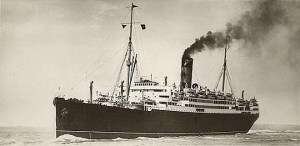
1942– The Laconia, a former Cunard White Star ship put to use to transport troops, including prisoners of war, was in the South Atlantic bound for England when it encountered U-156, a German sub. The sub attacked, sinking the troop ship and imperiling the lives of more than 2,200 passengers. But as Capt. Werner Hartenstein, the sub commander, was to learn, among those passengers were 1,500 Italians POWs. Realizing that he had just endangered the lives of so many of his fellow Axis members, he put out a call to an Italian submarine and two other German U-boats in the area to help rescue the survivors.
In the meantime, one French and two British warships sped to the scene to aid in the rescue. The German subs immediately informed the Allied ships that they had surfaced for humanitarian reasons. The Allies assumed it was a trap. Suddenly, an American B-24 bomber, the Liberator, flying from its South Atlantic base on Ascension Island, saw the German sub and bombed it – despite the fact that Hartenstein had draped a Red Cross flag prominently on the hull of the surfaced sub. The U-156, damaged by the air attack, immediately submerged.
Admiral Karl Donitz, supreme commander of the German U-boat forces, had been monitoring the rescue efforts. He ordered that “all attempts to rescue the crews of sunken ships…cease forthwith.” Consequently, more than 1,400 of the Laconia‘s passengers, which included Polish guards and British crewmen, drowned.

1943 – Otto Skornezy, SS-Standartenführer (colonel) in the German Waffen-SS made a daring rescue of deposed Italian dictator Benito Mussolini from captivity. Skorzeny took a contingent of his troops up in gliders and crashed them on the steep rocky slopes surrounding Campo Imperatore Hotel, a ski resort in Italy’s Gran Sasso, high in the Apennine Mountains.
Skorzeny and his troops stormed the hotel, capturing it without a shot. After finding the room where Mussolini was held prisoner, Skorzeny entered and destroyed the transmitting equipment. Mussolini was flown to Vienna in an aircraft that had landed after the assault began.
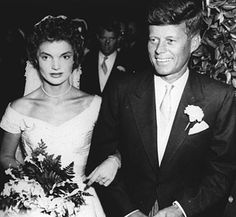
1953 – Senator John Fitzgerald Kennedy of Massachusetts married Jacqueline Lee Bouvier, a photographer for the Washington Times-Herald, at St. Mary’s Church in Newport, Rhode Island.
1953 – Six months after the death of Soviet leader Joseph Stalin, Nikita Khrushchev succeeded him with his election as first secretary of the Communist Party of the Soviet Union.

1954 – Lassie premiered on CBS. The program went through several personnel changes over the course of its 19-year run, including six different dogs playing the title role … all of them male.
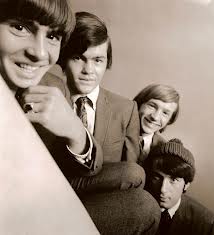
1966 – The Monkees premiered on NBC, beginning a two-year run.

1974 – In Boston, Massachusetts, opposition to court-ordered school “busing” turned violent on the opening day of classes. School buses carrying African American children were pelted with eggs, bricks and bottles. Police in combat gear fought to control angry white protesters besieging the schools.
In a June 1974 ruling in the matter of Morgan v. Hennigan, Judge Arthur Garrity had stated that Boston’s de facto school segregation discriminated against black children. The beginning of forced busing on this date was met with massive protests, particularly in South Boston, the city’s main Irish-Catholic neighborhood. Protests continued unabated for months, and many parents, white and black, kept their children at home. In October, the National Guard was mobilized to enforce the federal desegregation order.

1976 – Taxi premiered on ABC. The series, which switched to NBC in 1982, would win 18 Emmy Awards (including three for Outstanding Comedy Series) during its 5-year run.
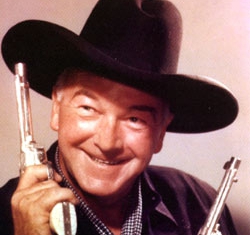
1977 – After nearly 40 years of riding across millions of American TV and movie screens, cowboy actor William Boyd, best known for his role as Hopalong Cassidy, died at the age of 77.

1977 – Steven Biko, leader of South Africa’s “Black Consciousness Movement,” died of severe head trauma on the stone floor of a prison cell in Pretoria. Six days earlier, he had suffered a major blow to his skull during a police interrogation in Port Elizabeth. Instead of receiving medical attention, he was chained spread-eagled to a window grill for 24 hours.
On September 11, he was dumped, naked and shackled, on the floor of a police vehicle and driven 740 miles to Pretoria Central Prison. He died the next day. In announcing his death, South African authorities claimed Biko died after refusing food and water for a week in a hunger strike.

1979 – Carl Yastrzemski of the Boston Red Sox drove a single into right field for his 3,000th career hit. He became the first American League player to reach 3,000 career hits and 400 career home runs.
1988 – Hurricane Gilbert slammed into Jamaica. With winds reaching 175 miles per hour, the Category 5 hurricane (with a 40-mile-wide eye) covered the entire island. The tin roofs that covered most homes were no match for the winds – about 80 percent of the island’s homes were seriously damaged and approximately 500,000 of the country’s 2 million people were left homeless. Nearly every home on the island lost electricity. Worst of all, more than 200 people lost their lives. The storm went on to cause death and destruction in Mexico and spurred a batch of tornadoes in Texas.
1990 – Representatives from the United States, Great Britain, France, and the Soviet Union signed an agreement giving up all occupation rights in Germany. The largely symbolic action cleared the way for East and West Germany to reunite.

1992 – Actor Anthony Perkins (Friendly Persuasion, Fear Strikes Out, Goodbye Again, but forever remembered for playing the role of Norman Bates in Psycho) died at the age of 60 from AIDS-relatedpneumonia.
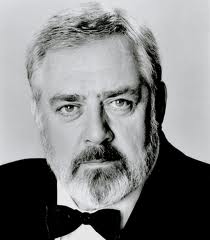
1993 – Actor Raymond Burr (A Place In The Sun, Rear Window, Perry Mason (1957-1966), Ironside (1967-1975) died of liver cancer at the age of 76.
2002 – Three former executives from Tyco International, including the CEO and CFO, were indicted in New York on charges that they stole hundreds of millions of dollars from the company. Two of the men, CEO Dennis Kozlowski and CFO Mark Swartz, were later convicted. Each man was later sentenced to 8 1/3 years to 25 years in prison. Kozlowski, 58, was ordered to pay $170 million in fines and restitution and Swartz, 45, was ordered to pay $72 million. The case became symbolic of the era’s corporate corruption and greed.

2003 – Singer Johnny Cash died of complications from diabetes at the age of 71. I Walk The Line, Ring Of Fire, Rock Island Line, A Boy Named Sue, Hurt are just a few of his many hits. Cash was an inductee in the Country Music Hall of Fame, Songwriters Hall of Fame, Rockabilly Hall of Fame, and the Rock and Roll Hall of Fame.
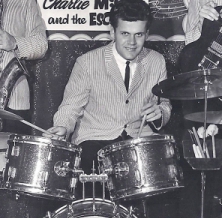
2004 – Drummer Kenny Buttrey died of cancer at the age of 59. His name may not be familiar to most, but maybe this will help: Buttrey played drums on Bob Dylan’s Blonde On Blonde, Nashville Skyline, Self Portrait and John Wesley Harding albums, Neil Young’s Harvest and Harvest Moon albums, and Jimmy Buffett’s Changes In Latitudes, Changes In Attitudes album, which included the hit Margaritaville.
Compiled by Ray Lemire ©2014 RayLemire.com. All Rights Reserved.